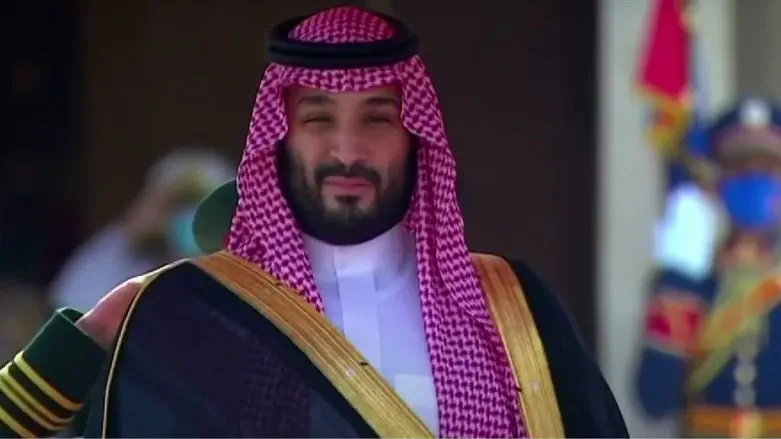
What 10 years ago would be discussing secretly behind the scenes has become an open-reality - many of the Sunni Arab countries and Israel are now openly working together on diplomatic, economic and security deals.
In the wake of the April failed drone and missile attack on Israel by Iran, talks over a potential Sunni-Israel diplomatic deal continue to surface despite political tension in the country, and the wider Middle East is running on high alert.
Iran’s attempt to pulverize Israel’s position in the Middle East had been overthrown by Israel’s new air defense network, along with several Arab nations shooting down drones and missiles entering their airspace.
To recap, on midnight of April 13, and the early morning of April 14, Iran launched over 170 drones, 30 cruise- and 120 ballistic missiles towards Israel..
The incoming barrage from Tehran had been marginally countered as nations including Jordan and Saudi Arabia had closed off their sovereign airspace for several hours, helping to possibly provide intelligence to neighboring countries over the airborne attacks.
Though the attempts to protect and defend their own airspace do not come as a direct victory for Israel's defense, it’s perhaps a step in the right direction and a major new development in the middle east.
Israeli politicians are hopeful that this is just the beginning, with the Saudis and potentially other Arab nations establishing a new foundation for trade and economic partnership.
However, it won't be a walk in the park. Finding common ground has been anything but an easy process, and it’s been an uphill battle for Prime Minister Benjamin Netanyahu embarking on this ambitious diplomatic goal to bring the two nations closer and sign the peace accords.
For Netanyahu, signing the agreement would help reshape Israel’s position in the Middle East, which could help boost economic trade activity and direct investment for Israel-based sectors.
For years the U.S. has been attempting to broker a deal between Israel and Saudi Arabia. The signing of the Abraham Accords in 2020, under the Trump Administration has been a breakthrough in Middle Eastern politics.
Since then, political priorities have started to shift, as some leaders are now more open about establishing more cooperation with Israel. Crown Prince Mohammed bin Salman, now Saudi Arabia’s de facto leader is one leader that’s looking towards the long-term benefits of having Israel in its camp.
Security and intelligence cooperation between Israel and Saudi has helped court Israeli politicians in recent months as both nations aim to contain mutual adversary over the fanatic Shiite government in Iran. None of them is losing sleep over Hamas's terrorist casualties, including Haniyeh and Deif.
The co-operation has paid off for both nations. April’s attempted drone and missile strike by Iran had been successfully blocked by Israel’s air defense network which had in part been aided by Saudi intelligence and other Arab countries. In fact, Iran looked like a paper tiger after launching hundreds of missiles and drones and the only impact being one Israeli Muslim girl getting seriously injured by shrapnel.
Regional politics are starting to change and perhaps more importantly have changed a lot in recent years. Since Trump held office, the Biden Administration had made the Israel-Sunni diplomacy deal central to their Middle Eastern policy.
The political landscape has dramatically shifted in recent years, with several nations including the United Arab Emirates, Bahrain, Morocco, and Sudan having normalized their relations with Israel. And there is a chance for real peace with the UAE encouraging Jews to move and visit the country, and the gulf country as well as Saudi Arabia removing anti-semitic incitement from their school curriculum. The current situation would have been unthinkable just 10-15 years ago.
Not everyone is onboard with the potential peace talks, as Iran and their terrorist pawns such as the Houthis, Hezbollah, Hamas etc. do anything in their power to stop the emergence of a peaceful middle east.
And it won’t be as easy as just signing a piece of paper. For the U.S. to win over the Saudis is going to take a lot more than simply agreeing to a few new deals.
The three-way normalization deal - Israel, Saudi Arabia, and U.S. - will take a more important seat at the table in the coming months as Americans are gearing up for the presidential election in November, and the Biden Administration seeking to complete their peace talks should the democrats lose the Oval Office.
U.S. Secretary of State Antony Blinken along with Saudi officials reached the final stages of their landmark deal in early May, however sources close to the matter have said that it’s not yet clear whether the Kingdom has reached an agreement on establishing diplomatic relations with Israel and that will not happen while the war continues.
Should the U.S. be successful in brokering another deal with the Saudis, it could help solidify their seven-decade alliance, as U.S. adversaries such as Iran, Russia, and China are seeking to increase their presence and influence in the Middle East. More than this, the agreements could help establish more permanent relations with other Arab nations in the region.
Getting here hasn’t been an easy task, and the ongoing peace talks could drag on into next year, however this is something that many politicians are hoping to avoid as the war with Hamas in Gaza is approaching its one year mark.
The coming months could bring a new wave of political change across Israel and help solidify the country’s position in the Middle East and its relations with other Arab nations that recognize the benefits they bring to both sides.